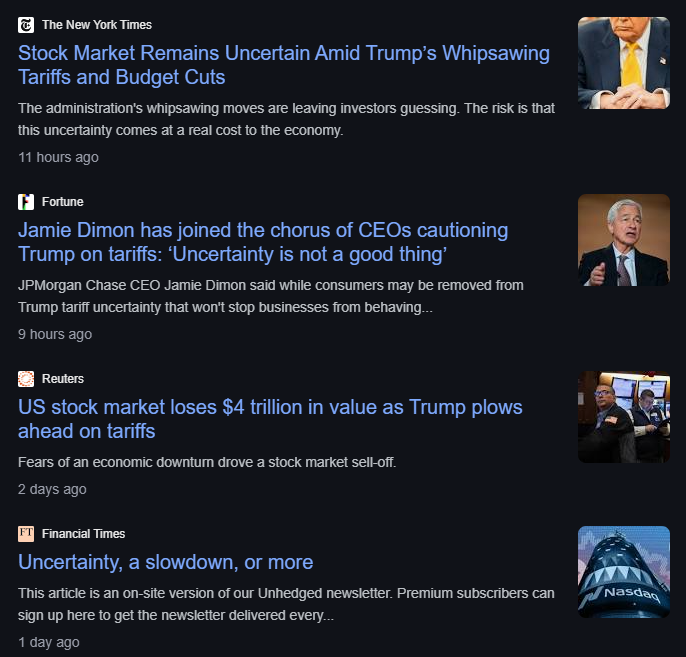Trade Alert: Eat this Revolutionary Distribution Network
So, maybe Warren Buffett’s not so smart after all — shifting consumer tastes challenge the Oracle – Chicago Tribune 2/27/2019
Imagine a company that distributes its content in 120 countries around the world. In some of the places where you get get its content, it’s literally the only content that you can get there. Now imagine that the company has been spending billions to get more variety of propriety content, including stuff to put into the distribution network that is actually healthier the consumer.
I’m not talking about Netflix or Spotify or Disney or Apple. Nope, I’m talking about Campbell’s Soup.
CPB offers compelling value and it’s actually a lot more Revolutionary than most people realize. Why? Because of the incredible distribution network that the company has built up over the decades. And just like it’s entirely too expensive for other content companies to go back in time and get their apps inside of all the TVs and smartphones and tablets and dongles that have been sold which feature Netflix, so too is it that food companies can’t magically get bodegas in the Bronx and hotel lobby desks to stock their soup, their juice, their snacks.
That’s why I’ve always wanted to own some of these great consumer brand food companies — not for their food, but for their proprietary, highly scaled distribution networks that have hit critical mass over the years.
But I’ve been waiting for patiently for the right pitch from the markets to initiate any food positions. I think we might have a good entry pitch here to start buying some Campbell’s Soup CPB that we can hold onto just about forever as the company streams better, healthier, higher profitable content over their network. So to speak.
The stock declined has been killed lately because they’ve struggled to get a new CEO in place and last week it got hit hard in sympathy with the Kraft Heinz Company (KHC), which plunged 27.46% on missed earnings. We’re looking at getting a 4.3% dividend, compared to the 2.45% US Treasury bills yield or US 30 year bond yield of 3.021%.
CPB is selling noncore assets too, which will help it focus on its healthier and more profitable content. Just last week, the company announced that it has signed a definitive agreement for the sale of its Everett, Washington, refrigerated soup plant to an affiliate of the Joshua Green Corporation(JGC), a Seattle-based private investment company. Campbell is in the process of divesting its Campbell Fresh and Campbell International businesses to increase the company’s focus, significantly reduce debt and strengthen its balance sheet as part of its review of its business under the leadership of new CEO Mark Clouse who just started in January. I hope the company reconsiders selling the Campbell Fresh part of the business, as I personally consume quite a bit of their healthier refrigerated products, especially the 1915 brand cold-pressed juices at the local network distribution outlet here in Ruidoso (aka, the local Albertson’s grocery store).
The Company also resolved its dispute with Daniel Loeb, an activist shareholder on a few weeks ago. He and the other activists in this stock are going to be keeping the new CEO and the company under pressure to deliver growth and profits. No dillydallying allowed.
CPB also has a large family – insider – ownership, about 37%, which I like in this case as I expect that ensures that the company will not take reckless risks.
Of course, challenging issues remain. One is the consumers becoming more health conscious. Healthy eating isn’t a phase as people increasingly push for organic ingredients and local grown produce. With a huge market share (60%), the company has exposure to every market segment and should be able to gather data and artificial intelligence to distribute what is needed in each market where it is needed with premier shelf space.
Another issue is high debt. CPB has the highest debt to shareholder equity ratios in the sector. (Calculated using the fiscal year end values and dividing the long term debt, including the lease obligations, convertible debt and mortgages) by shareholders’ equity.
The valuation looks compelling enough to get me started buying it here as the stock is trading at less than 12x 2019 earnings estimates (whereas sector average is 18+). CPB five year PE range is 10-23x. Also EV/FCF for CPB is 41.9x as compared to the industry average of 70X.
The average stock is quite overextended right now and Revolutionary Tech Stocks specifically have been through the roof so far this year. In six months, we might look back and wonder why we were chasing momo when we could have been buying some of the lesser-loved names out there, in this case, a company that’s paying nearly 5% dividend to boot.
And all the people admonishing Warren Buffet for his Kraft Heinz loss this year who think buying great brands and distribution networks when they are cheap might want to consider just following his lead from over the decades instead.
I plan to buy and hold this Revolutionary Distribution Network for food for decades perhaps. CPB.




